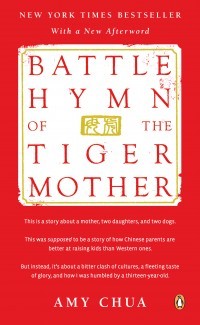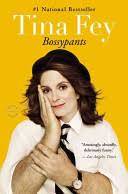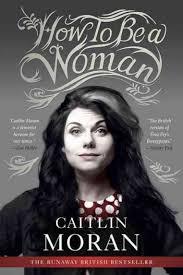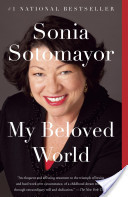I often think about a saying attributed to the Dalai Lama, that goes something like this: we sacrifice our health to make money and then we spend our money to take care of our health. How do we reject the expectations foisted on us to excel at everything in work and in life, to drive ourselves to the limit, while we try to be happy, healthy human beings? Of course, both women and men confront this question, but women have some different concerns because they have had to fit into a world largely constructed by and for men.
In my book The Big Lie, I explore the choices women have to make during their lifetimes and how those choices impact society and the future. I delve into the variety of lies we are told as well as those we tell ourselves. One lie, or myth, to be more precise, is that there is work/life balance. I believe true balance might be unattainable, but we can achieve moments of it.
One of my goals for 2014 is to have those moments happen more often and last longer.
Many female authors have boldly tackled work/life issues from different angles, some of them in very personal ways. I read a stack of these writings while researching my book and have a few on my list to spend more time with in the coming year. Here are my top reads for those seeking to understand and improve the elusive work/life balance:
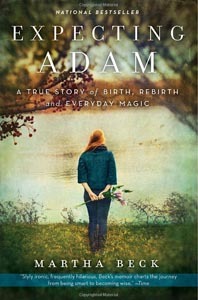
Beck, Martha. Expecting Adam: A True Story of Birth, Rebirth, and Everyday Magic. New York: Three Rivers Press, 2011.
Beck's heart-wrenching and lyrical memoir recounts her experience pursuing a doctorate at Harvard while knowing that she is carrying a child with Down Syndrome and deciding to continue with the pregnancy. This line especially stuck with me: "I am very much afraid of being caught in the firestorm of controversy over abortion, genetic engineering, medical ethics. It worries me to think that I will be lumped with right-to-lifers, not to mention every New Age crystal kisser who ever claimed to see an angel in the clouds over Sedona."
Many women reacted with vitriol to this tome by Chua, a Yale law professor, about Chinese versus American parenting styles, but I found the book to be more humorous and personal than judgmental. On whether to let her daughter go to a sleepover, she wrote, "Sophia didn't need to be exposed to the worst of Western society, and I wasn't going to let platitudes like 'Children need to explore' or 'They need to make their own mistakes' lead me astray." On her website, Chua says, "I genuinely believe that there are many ways of being a good parent. We all want our kids to grow up happy, strong, and self-reliant. But different cultures have very different ideas about the best way to do that. And we should all be able to learn from each other."
I, along with much of America, am a huge Tina Fey fan. In her memoir, Bossypants, she described a scene in the Saturday Night Live writers' room when Amy Poehler was new to the show. "Amy was in the middle of some such nonsense with Seth Meyers across the table, and she did something vulgar as a joke. I can't remember what it was exactly, except it was dirty and loud and 'unladylike.'" Jimmy Fallon told her to stop. She turned to him and said, "I don't f***ing care if you like it," and went back to doing what she was doing. Fey explained, "With that exchange, a cosmic shift took place. Amy made it clear that she wasn't there to be cute. She wasn't there to play wives and girlfriends in the boys' scenes. She was there to do what she wanted to do and she did not f***ing care if you like it. . . . I think of this whenever someone says to me, 'Jerry Lewis says women aren't funny,' or 'Christopher Hitchens says women aren't funny. . . . Do you have anything to say to that?' Yes. We don't f***ing care if you like it."
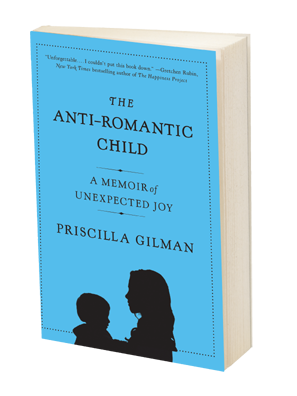
Gilman, Priscilla. The Anti-Romantic Child: A Memoir of Unexpected Joy. New York: Harper Perennial, 2011.
In this memoir, Priscilla Gilman, who was earning her doctorate when she had children, intersperses excerpts from Wordsworth with her experiences having a son with hyperlexia, a developmental disorder. She wrote: "In choosing to get pregnant while still in graduate school, without a completed dissertation or a job, I was taking a huge professional risk. . . . At the time I first became pregnant, only one other female graduate student in my department had had a baby (three children later, she left the profession), and almost all of the female professors had waited until securing tenure before trying to conceive. I was aware of the ominous studies and statistics showing that having children dramatically reduced a woman's chances of receiving tenure."
In this hilarious memoir, journalist/TV writer/feminist author Caitlin Moran wrote that when women are asked about having kids, the question is actually "'When are you going to f*** it all up by having kids?' When are you going to blow a four-year chunk, minimum, out of your career--at an age when most people's attractiveness, creativity, and ambition is peaking--by having a baby? . . . When do the holes start appearing in your CV?"
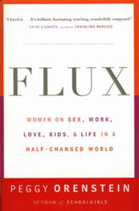
Orenstein, Peggy. Flux: Women on Sex, Work, Love, Kids, & Life in a Half-Changed World. New York: Anchor Books, 2000.
To explore what it meant to be a woman at the beginning of the 21st century, Orenstein spoke to more 200 women between the ages of 25 and 45. On the struggle between choosing motherhood and/or career -- a struggle that she herself was grappling with -- she wrote: "It doesn't help that the world of children continues to be run as if women don't work, or can drop whatever they're doing at a moment's notice."
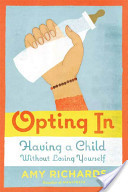
Richards, Amy. Opting In: Having a Child without Losing Yourself. New York: Farrar, Straus and Giroux, 2008.
In this book that shows it is possible to be a feminist and a good mother, too, Richards, a pioneer of third-wave feminism and mother of two sons, wrote: "The changes wrought by feminism were often subtle and so integrated into our daily lives that younger people have no reason to know that the women's movement paved the way. We have baby seats in grocery carts, diaper-changing stations in men's and women's restrooms, schools that don't segregate for boys and girls for sports, tax deductions for child care expenses . . . feminism's investment in parenting is undeniable."
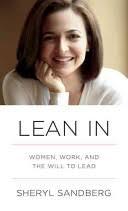
Sandberg, Sheryl. Lean In: Women, Work, and the Will to Lead. New York: Alfred A. Knopf, 2013.Facebook COO Sheryl Sandberg explained her own conversion to feminism after shirking the word for much of her youth. "Social gains are never handed out. They must be seized. Leaders of the women's movement--from Susan B. Anthony to Jane Addams to Alice Paul to Bella Abzug to Flo Kennedy to so many others--spoke out loudly and bravely to demand the rights that we now have. . . . Looking back, it made no sense for my college friends and me to distance ourselves from the hard-won achievements of earlier feminists. We should have cheered their efforts. Instead, we lowered our voices, thinking the battle was over, and with this reticence, we hurt ourselves. Now I proudly call myself a feminist."
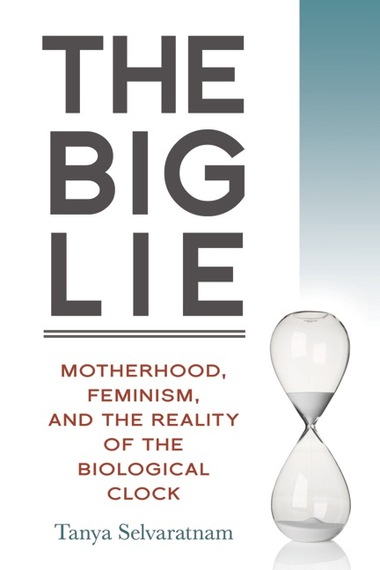
Selvaratnam, Tanya. The Big Lie: Motherhood, Feminism, and the Reality of the Biological Clock. New York: Prometheus Books, 2014.
As I say in the introduction, "There is so much pressure on women with regard to our reproductive selves that we face an enormous amount of guilt when we have an abortion, a miscarriage, or an unsuccessful fertility treatment. I've had all three. One goal of this book is to strip away the guilt women might feel and to normalize the discourse around these issues." In The Big Lie, I explore how delaying motherhood intersects with evolution and fertility science, female friendships, popular culture, feminism, global economics, and more. My hope is that the book sparks debate and advocacy for better solutions and inspires people to embrace the multiplicity of ways in which people live their lives, with or without children. I close the book with Action Items for the Future, including advice for people of different reproductive ages.
On May 5, 2013, Cinco de Mayo, I went to see Sonia Sotomayor, the first Hispanic Supreme Court Justice, give a lecture at the PEN World Voices Literary Festival. After the event, I bought her memoir, My Beloved World, in which she writes, "There are uses to adversity, and they don't reveal themselves until tested. . . . Difficulty can tap unsuspected strengths." These words inspired me as I completed my book. Sotomayor has spoken publicly about her regret that she didn't bear or adopt children. But, as she described in her memoir, she has many kids around her because she has more godchildren than anyone she knows. She also wrote about the disapproval she felt in her school as the daughter of a working mother: "The nuns were critical of working mothers, and their disapproval was felt by latchkey kids. The irony of course was that my mother wouldn't have been working such long hours if not to pay for that education she believed was the key to any aspirations for a better life."
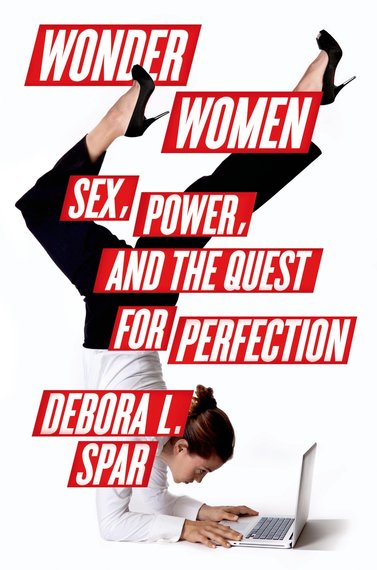
Spar, Debora L. Wonder Women: Sex, Power, and the Quest for Perfection. New York: Sarah Crichton Books, 2013.
I quote Barnard President Debora L. Spar in my book: "Making a world that is better for women also demands that women work together. In its earliest incarnation, feminism was about communal action and goals; about giving women the power to shape not only their reproductive lives, but also their destinies and that of the world around them. Over the decades, though, this collective goal has been lost, replaced by the individual struggles that now compel most women." I look forward to learning more of what Spar, herself a Wonder Woman, has to say.
I wish you all a happy new year and may more of your dreams come true in 2014. Thank you for reading.

